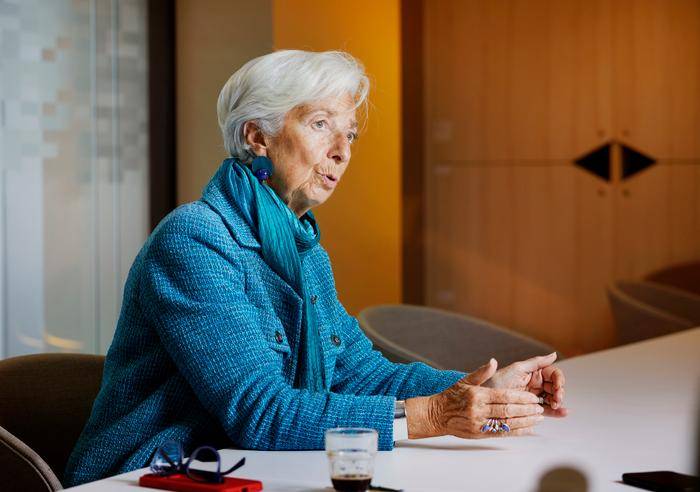ECB President Christine Lagarde Warns: Europe and France Are Falling Behind
ECB President Christine Lagarde has sounded the alarm, warning that Europe, including France, is falling behind. This stark warning comes as the European Central Bank struggles to combat inflation, which remains stubbornly above the 2% target ¹.
Lagarde's concerns are rooted in the euro area's economic performance, particularly in Germany, where savings banks have played a vital role in supporting industry. However, the banks' business is also heavily influenced by monetary policy, making them a crucial link in the transmission of policy decisions to firms and households.
The ECB has taken decisive action to fight inflation, hiking rates by 375 basis points in less than a year. This rapid policy adjustment has put the ECB in a different position today, but Lagarde emphasizes that the battle is far from over. The ECB needs to carefully assess the strength of monetary policy transmission to financing conditions, the economy, and inflation.
*Key Factors Influencing ECB Decisions*
- _Inflation Outlook_: The ECB relies on staff projections to gauge the inflation path over the medium term. These projections will guide decisions on interest rate adjustments ¹.
- _Underlying Inflation_: The ECB monitors the slow-moving part of inflation, which will persist into the medium term, to ensure that temporary shocks do not inflate expectations.
- _Monetary Policy Transmission_: The ECB assesses the strength of policy transmission to financing conditions, the economy, and inflation to determine the effectiveness of rate hikes.
Lagarde's warning serves as a reminder that Europe's economic growth is lagging, and France is no exception. The euro area economy is expected to have stagnated in the final quarter of 2023, with incoming data signaling weakness in the near term ¹.
*Challenges Facing Europe*
- _Rising Inflation_: The combination of shocks, including the Russia-Ukraine war, has pushed inflation to record highs.
- _Economic Growth_: The euro area is clearly not facing a typical situation of excess aggregate demand or economic overheating.
- _Supply Chain Disruptions_: The war is likely to speed up the green transition, causing geopolitics to become more important for the structure of global supply chains.
In conclusion, the ECB's stance on monetary policy and Lagarde's concerns about Europe's economic performance highlight the need for swift action to address challenges and ensure sustainable growth. As the ECB continues to monitor economic developments, policymakers must work together to implement reforms and investments that will drive Europe's economy forward.




No comments yet
Be the first to share your thoughts!